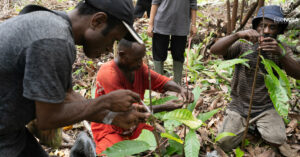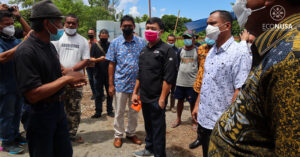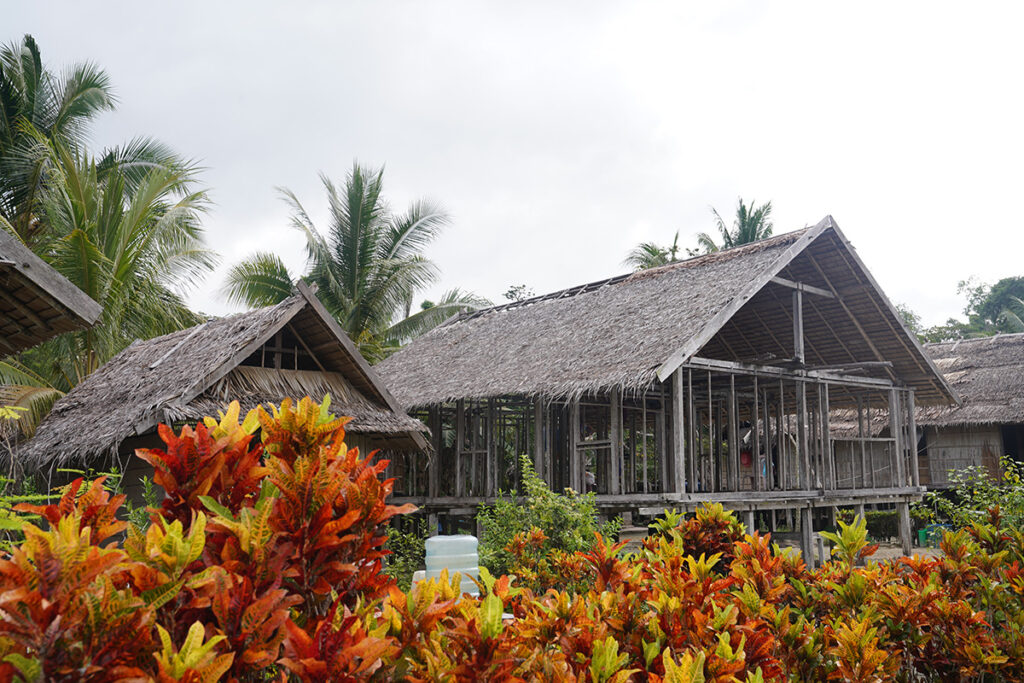
In a remote corner of Raja Ampat, amidst untouched natural beauty, lies a village rich in unique cultural heritage and traditions. Marandan Weser Village, located in Yensawai, North Batanta District, Raja Ampat, stands as a testament to how its people have managed to balance the demands of modern life with the preservation of ancestral traditions.
The houses in Marandan Weser Village are built in a manner that is both unique and deeply rooted in local wisdom. Unlike most modern homes that use industrial materials such as nails, iron, or concrete, the houses here are constructed entirely from natural materials. Mangrove wood, sago leaves, bobo leaves, and tree bark are the primary materials used in the construction of these homes. It may sound unlikely to those accustomed to modern construction, but in Marandan Weser, this is a tradition that has been carefully maintained for generations.
“This is how it has always been; we are simply continuing what our ancestors have passed down to us,” says Herman Pariri, one of the residents of Marandan Weser.
The traditional houses in Marandan Weser are uniformly sized, with the main structure measuring 9×7 meters and the kitchen 4×5 meters. This uniformity is not coincidental. Behind it lies a profound philosophy: all residents have equal rights and status within their community. No house is larger or smaller; all are designed to reflect the principle of equality embraced by the indigenous people of this village.
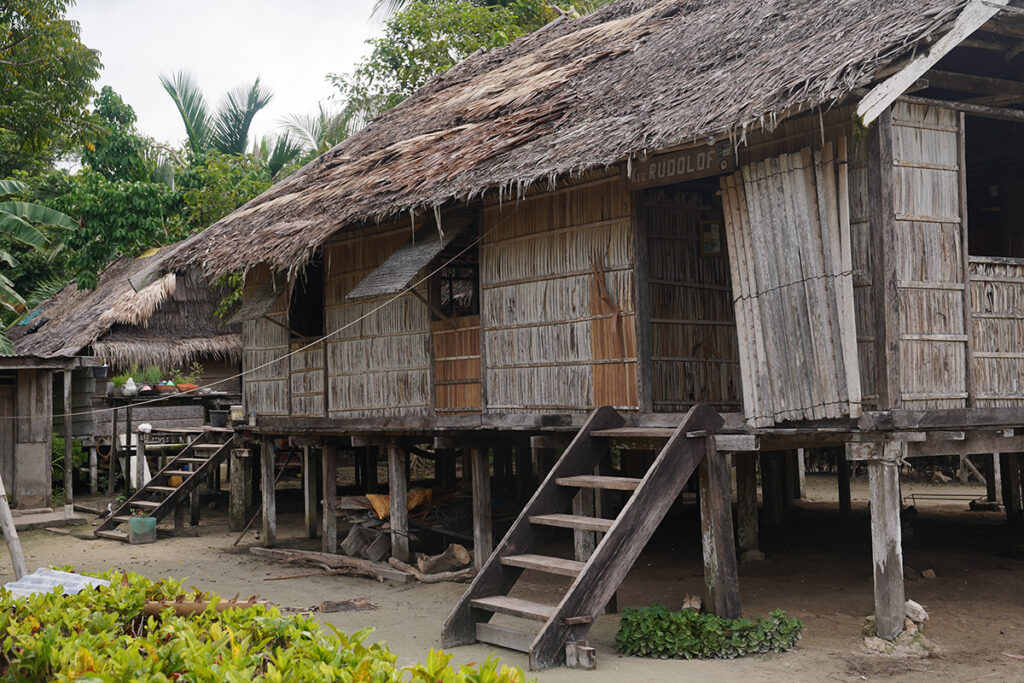
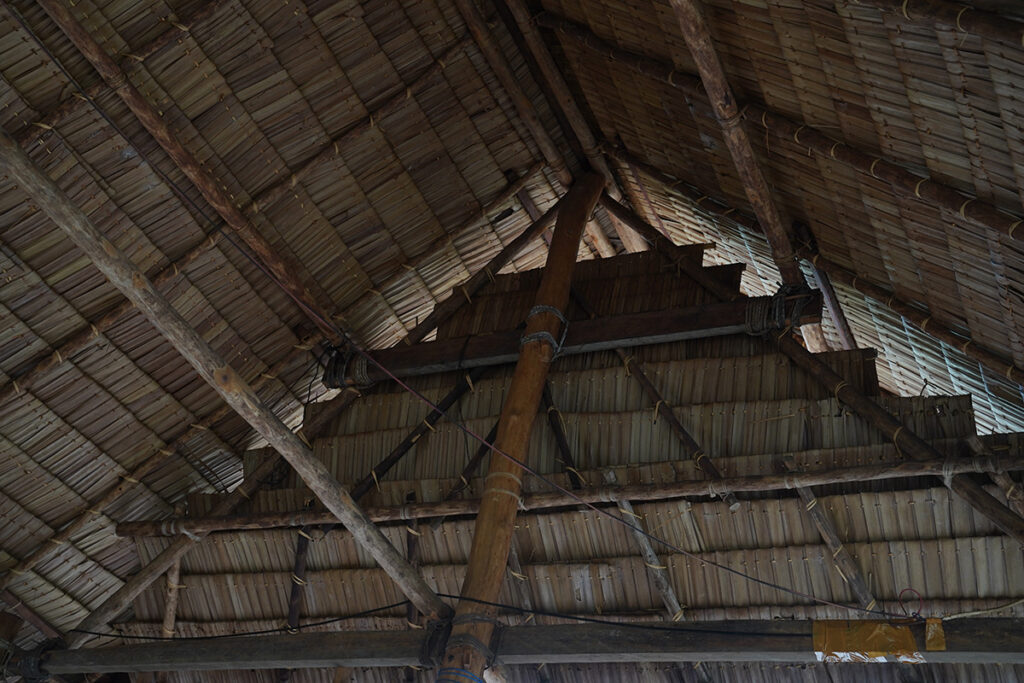
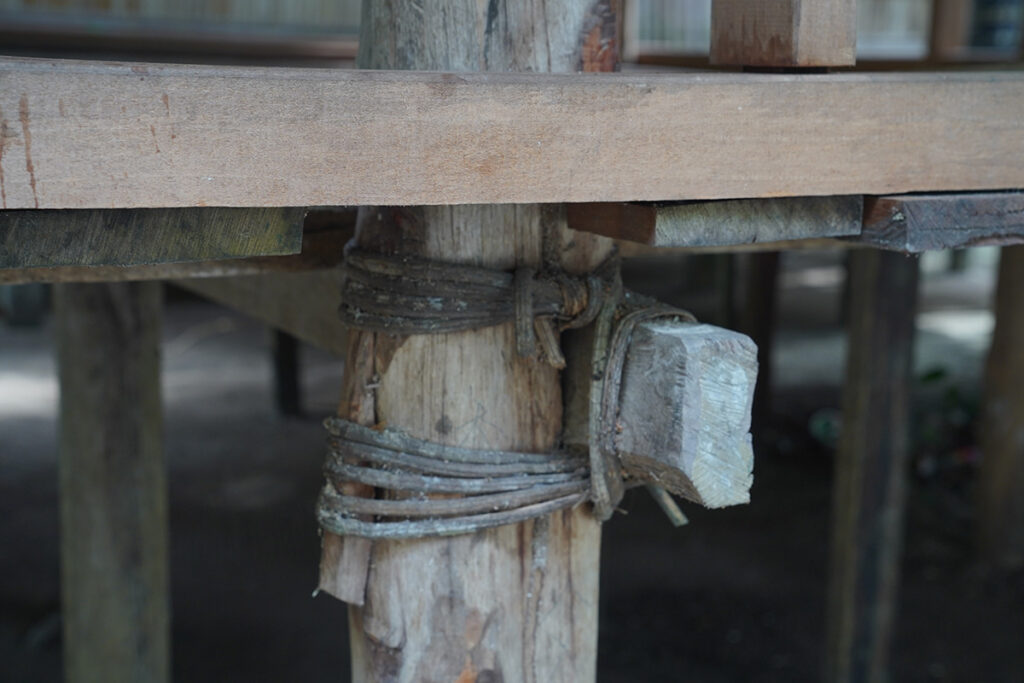
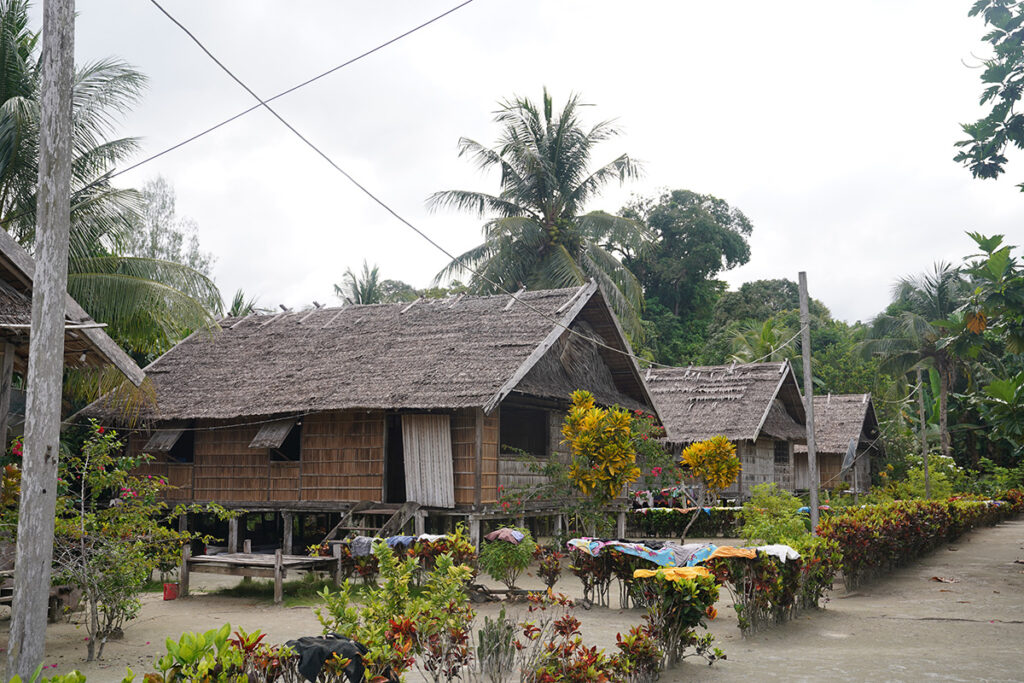
Collaborative effort is at the heart of house construction in Marandan Weser Village. Every villager is involved in the process, from bapa-bapa preparing the wood, to mama-mama weaving the roofs from sago leaves. This process not only produces sturdy and functional homes but also strengthens social bonds and fosters a sense of togetherness among the residents. This cooperation reflects the values of solidarity and unity that form the foundation of life in the indigenous community of Marandan Weser.
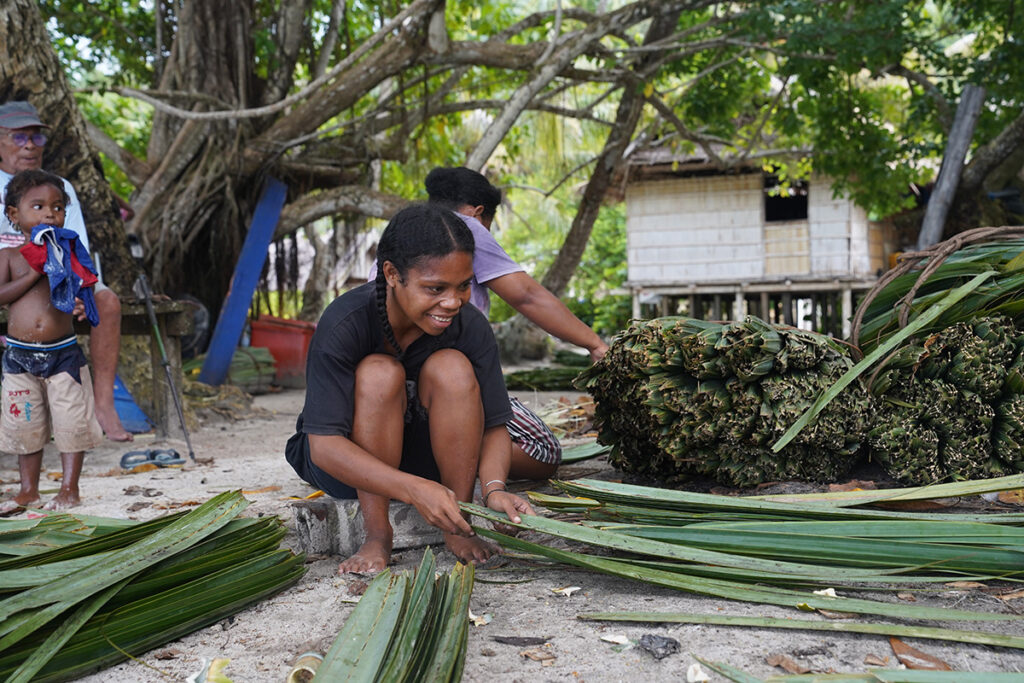
Amidst the relentless tide of modernization, Marandan Weser Village has succeeded in preserving its traditions. This is no small feat, considering the various challenges faced by indigenous communities in the era of globalization. However, the people of Marandan Weser understand that preserving tradition is not just about maintaining cultural heritage, but also about protecting the natural balance. By using natural materials and avoiding environmentally harmful industrial products, they contribute directly to the conservation of the ecosystems surrounding them.
“These traditional houses are not just places to live but symbols of identity and sustainability. We protect nature because nature also protects us,” says Herman.
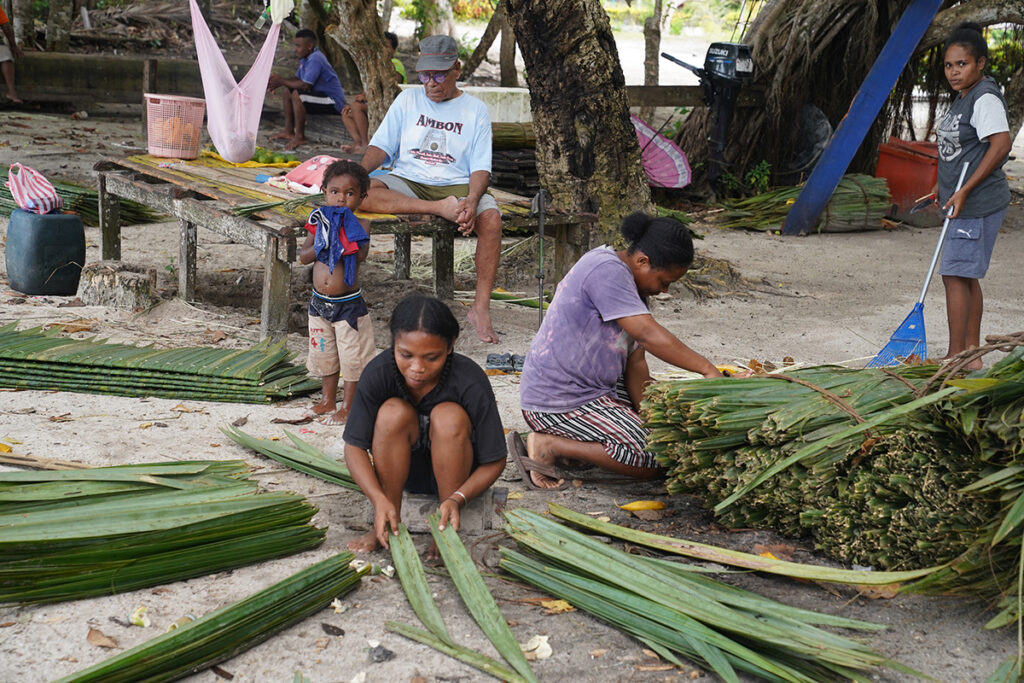
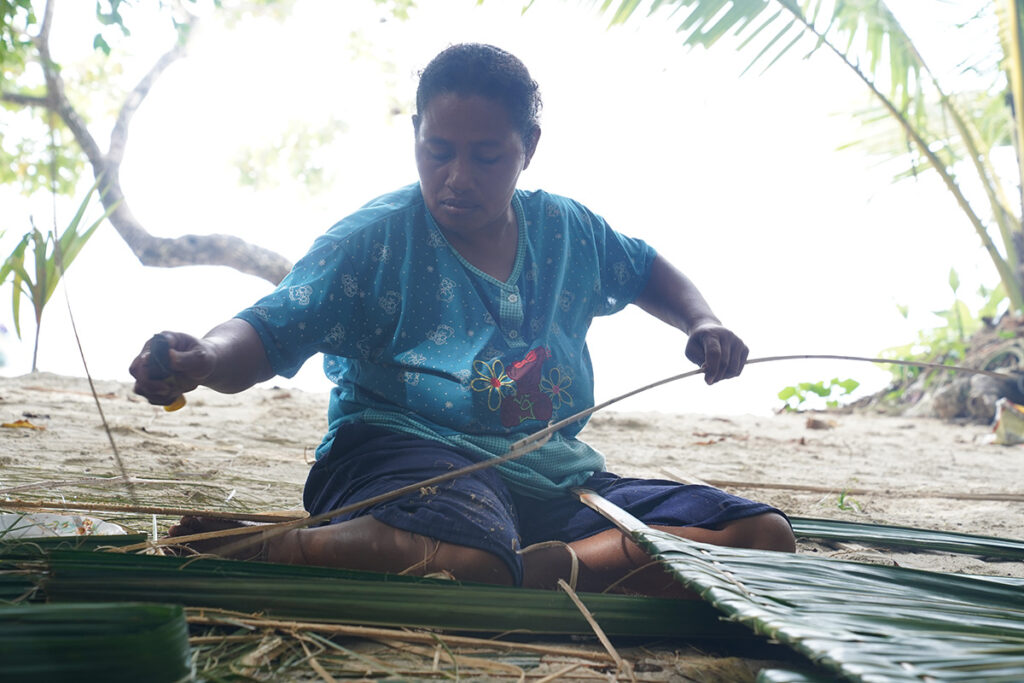
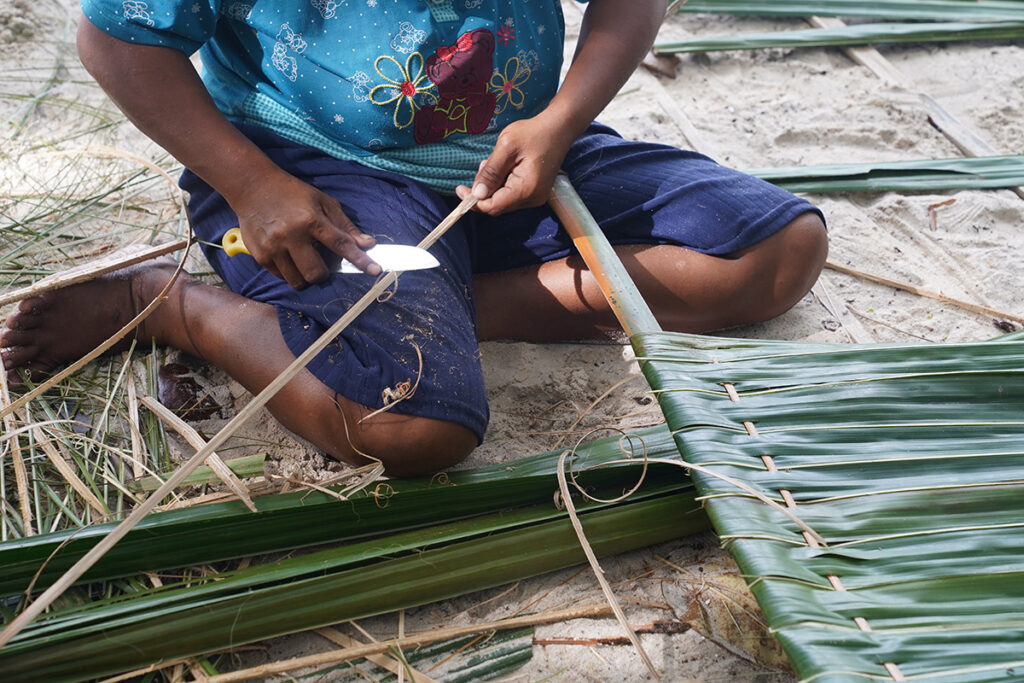
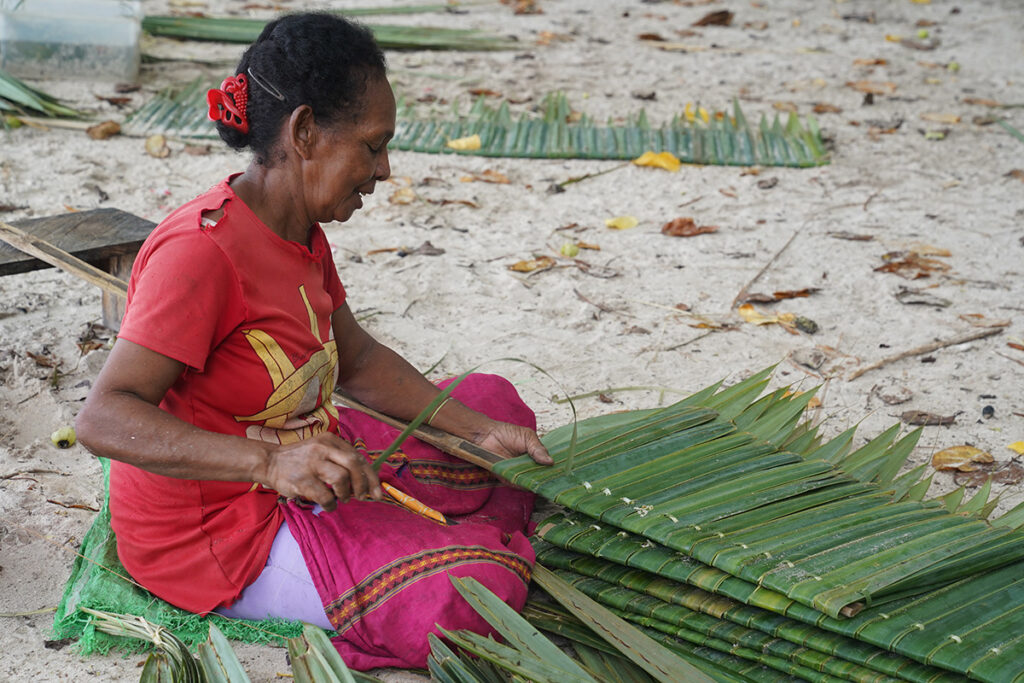
Marandan Weser Village is not just about traditional houses; it is about a way of life that teaches balance between humans and nature. For the people here, nature is not something to be exploited without limits but something to be cherished and respected. They believe that protecting nature is a shared responsibility, and this belief is reflected in the way they build and maintain their homes.
In recent years, Marandan Weser Village has begun to attract tourists interested in local wisdom and cultural preservation.
One of the women in Marandan Weser said, “We believe that every piece of wood used, every leaf woven, carries meaning and a story. Our homes are not just places to live, but reflections of who we are and how we honor the nature that gives us life.”



